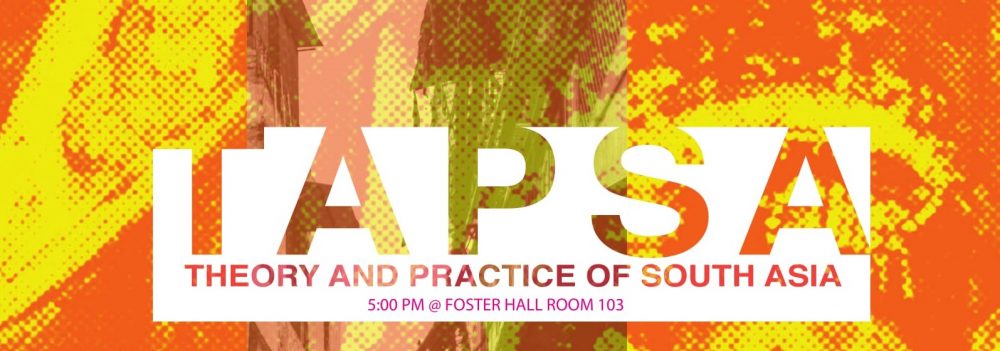The Theory and Practice of South Asia (TAPSA) workshop and its associated Graduate Student Conference, are, in conjunction with the academic work of the Department of South Asian Languages and Civilizations (SALC) and the Committee on Southern Asian Studies (COSAS), an important part of the intellectual activities in South Asian studies at the University of Chicago. TAPSA workshops are scheduled in coordination with the South Asia Seminars, a separate lecture series, which is funded directly by COSAS. This arrangement provides weekly interdisciplinary intellectual events. The TAPSA talks feature presentations by University of Chicago advanced graduate students from various humanities and social sciences disciplines, including Art and Art history, Musicology, South Asian languages and civilizations, Anthropology, Sociology, History, Political science, and Religious studies. The South Asia Seminar talks are presented by visiting scholars and faculty. For our students, the benefits of TAPSA include the opportunity to present their work in progress to an interdisciplinary audience of peers and professors, and to benefit from the intensive interaction that is stimulated by a 45-50 minute presentation followed by 30-40 minutes of discussion. The faculty coordinators stress that these talks are valuable opportunities for students to receive critical input from their own student colleagues and from faculty.
For the current academic year (2018-2019), the workshops take place on Thursdays from 5:00-6:20 in Foster 103. For any questions contact Supurna Dasgupta at sdasgupta@uchicago.edu
